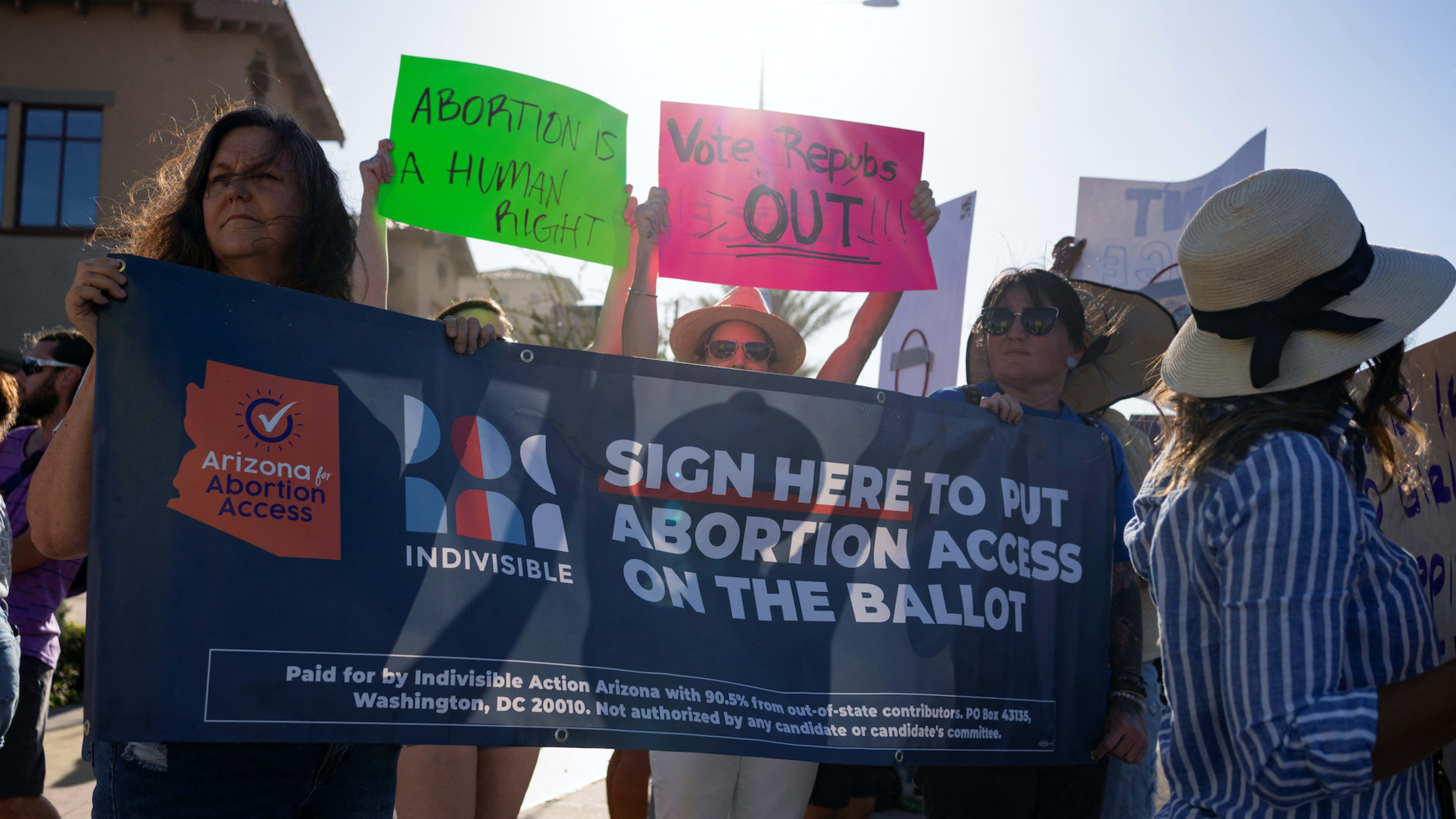The Arizona Supreme Court’s decision reviving a near-total abortion ban dating back to the 19th century is at odds with a pledge from the state’s Democratic governor and chief prosecutor to protect abortion rights. Here is how the conflict could unfold.
What is the law that was revived?
The law was passed in 1864, long before Arizona was a state. It bans all abortion except to save the mother’s life and does not include any exception for rape or incest. It carries a sentence of up to five years in prison for performing an abortion.
Did the court’s ruling leave room for further challenges to the law?
Yes. The Supreme Court’s ruling addressed only the narrow issue of whether the 19th century law was repealed by a more recent 15-week abortion ban passed in 2022, and concluded that it was not. It did not weigh in on whether the law might be unconstitutional for other reasons.
Who might enforce the law?
Democratic Arizona Attorney General Kristin Mayes has said she will not enforce the 1864 law, as have local prosecutors in some of the state’s most populous areas like Maricopa County. Mayes has also said she will use her authority to stop any local prosecutors from prosecuting an abortion case.
Mayes has supervisory authority over county attorneys, and last year Governor Katie Hobbs, a Democrat, issued an executive order giving her authority over all abortion-related prosecutions.
Hobbs and Mayes have said repeatedly that no Arizonans would be prosecuted under the ban while they are in office.
However, that will likely not be enough to reassure abortion providers that they can continue to offer services, because it is not clear whether or how Mayes could use her authority to block a local prosecutor with anti-abortion views from charging someone under the law, legal experts said.
Furthermore, an abortion could still be prosecuted if a new attorney general with different views takes office.
How could the law next be challenged in court?
The ruling stems from a 1971 lawsuit by Planned Parenthood to the 1864 abortion ban. The reproductive rights group and abortion provider ultimately prevailed after the U.S. Supreme Court established a right to abortion in its landmark Roe v. Wade decision in 1973, which remained in place until it was reversed in 2022.
That case, which was reopened by Hobbs’ Republican predecessor after Roe was overturned, included claims that the ban violated Arizonans’ rights to liberty and privacy under the state constitution, which Tuesday’s decision did not address. Planned Parenthood or Mayes’ office could ask the court presiding over the case to block the law on those grounds.
The state Supreme Court put its decision on hold for 14 days to allow time for such a request. If a lower court did block the law again, the case could eventually go back to the state’s high court on appeal.
Planned Parenthood referred a request for comment to Mayes’ office, where a spokesperson said it was considering all legal options.
What other options do abortion rights supporters have?
Some observers believe that, in light of the Arizona Supreme Court’s ruling, the path forward for abortion rights supporters in the state is more likely political than legal. Democratic lawmakers have already tried to advance legislation repealing the ban, but were blocked by the Republican majority, though some Republicans have supported repealing the ban.
Meanwhile, organizers say they have already gathered enough signatures to present voters with a ballot measure establishing a right to abortion in this November’s elections. A similar measure is expected to appear on the ballot in Florida, and previous efforts have been successful in other states including Republican-dominated Kansas and Ohio.
—Brendan Pierson, Reuters
Recognize your brand’s excellence by applying to this year’s Brands That Matter Awards before the early-rate deadline, May 3.
